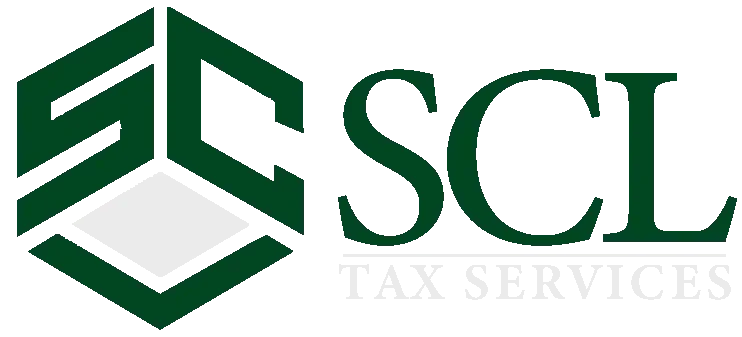Running a business in the Bronx isn’t just about keeping the lights on and meeting deadlines—it’s also about attracting and keeping great employees. And in 2025, there’s a unique benefit that can help you do exactly that: using Bronx employer student loans assistance programs to pay up to $5,250 per employee, tax-free, through the end of 2025.
In this post, we’ll break down how the program works, why it’s a win-win for businesses and employees, and how local Bronx employers can take advantage before time runs out.
Why This Matters for Bronx Employers

If you’ve ever tried to hire in the Bronx lately, you know the competition is real. Job seekers are looking for more than just a paycheck—they want benefits that make a difference in their everyday lives. And nothing is more stressful for many workers than student loan debt.
According to the Federal Reserve, Americans owe more than $1.6 trillion in student loans. That’s a huge burden, and in a high-cost area like the Bronx, monthly payments can eat up a big chunk of an employee’s paycheck.
Offering a Bronx employer student loans benefit sends a clear message: We care about your financial future. It can help you:
- Attract top talent who might otherwise choose a competitor.
- Retain valued employees longer.
- Stand out in job postings with a unique, high-value perk.
- Boost morale and loyalty in your workplace.
What Is Section 127 and Why Does It Matter for Bronx Employers
This tax break comes from Section 127 of the Internal Revenue Code, which allows employers to provide up to $5,250 annually in educational assistance benefits without the employee paying income tax on it. Traditionally, this covered tuition, books, and job training — but since the CARES Act of 2020, student loan repayment assistance has been added to the list.
That means until December 31, 2025, you can help employees pay off student loans and deduct the amount as a business expense, all while they receive it tax-free. Both sides save money — no payroll taxes for you, no income tax for them.
How the $5,250 Tax-Free Student Loan Benefit Works

The rules are straightforward, but it’s important to follow them carefully so the payments qualify as tax-free under the law.
Set Up a Written Educational Assistance Program
The IRS requires a formal plan, not just a verbal promise. This document explains who’s eligible, how the benefit works, and how payments will be made.
Offer It Fairly
You must make the program available to all eligible employees, not just highly compensated staff.
Direct Payments or Reimbursements
You can either pay the lender directly or reimburse employees after they’ve made a payment.
Annual Limit
The maximum tax-free amount is $5,250 per employee, per year. Anything above that is taxable income.
No Double Dipping
The same $5,250 can’t be used for both tuition assistance and student loan repayment in the same year—it’s one or the other.
Following these steps keeps the benefit compliant and ensures you and your employees get the full tax advantage. Bronx employers can rely on experienced Bronx tax services to help set up and manage these programs correctly, making it easier to offer student loan benefits that meet IRS requirements.
How Bronx Employers Can Promote Bronx Employer Student Loans and Avoid Common
Providing Bronx employers with student loan assistance can be a valuable benefit, but it requires clear communication and careful compliance.
Employers should educate employees on how the tax-free $5,250 benefit works, who qualifies, and how to access it. Clear, simple explanations, whether through meetings or written materials, help ensure that everyone understands their options.
It’s also crucial to avoid common mistakes like not having a formal written plan, limiting the benefit to only select employees, or failing to maintain accurate payment records. These errors can jeopardize the program’s tax-free status and lead to IRS penalties.
Partnering with tax professionals can help Bronx businesses establish a compliant educational assistance plan, properly inform staff, and maintain required documentation, so both employer and employee can fully benefit from this program.
Why Bronx Employers Should Act Before 2025
The Bronx employer student loans program is only authorized through the end of 2025 unless Congress extends it again. Waiting too long could mean missing out on years of potential savings for you and your team.
Beyond the deadline, there’s a strategic advantage to starting now:
- Differentiate Your Business – Most small and mid-sized businesses still don’t offer student loan benefits, so you’ll stand out.
- Attract Top Talent – Job seekers increasingly look for financial wellness perks when choosing where to work.
- Reduce Turnover Costs – Replacing an employee can cost thousands, sometimes more than the benefit itself.
SCL Tax Services: Your Partner for Bronx Employer Student Loans

Implementing a compliant student loan repayment benefit involves more than just deciding to give money. You need a clear, written educational assistance plan that meets IRS standards, along with proper record-keeping and tax reporting.
At SCL Tax Services in the Bronx, we specialize in helping businesses like yours set up and manage these programs smoothly. We guide you through the process of drafting your plan, explain eligibility requirements, and ensure your payments are reported correctly to maximize your tax advantages.
Beyond just student loan repayment, our team offers full tax preparation, business tax planning, and bookkeeping services, allowing us to integrate your benefit program seamlessly with your overall financial strategy. When you work with SCL Tax Services, you get a trusted partner dedicated to helping you make the most of your resources while keeping everything IRS-compliant.
FAQs – Bronx Employer Student Loans
Any eligible employee under your written educational assistance program—both full-time and part-time, depending on your plan—can receive the benefit.
Possibly, but there are restrictions, especially for owners with significant stakes in the business. Talk to a tax professional first.
Yes, Section 127 covers both types.
Not unless Congress extends it again. As of now, it ends December 31, 2025.
